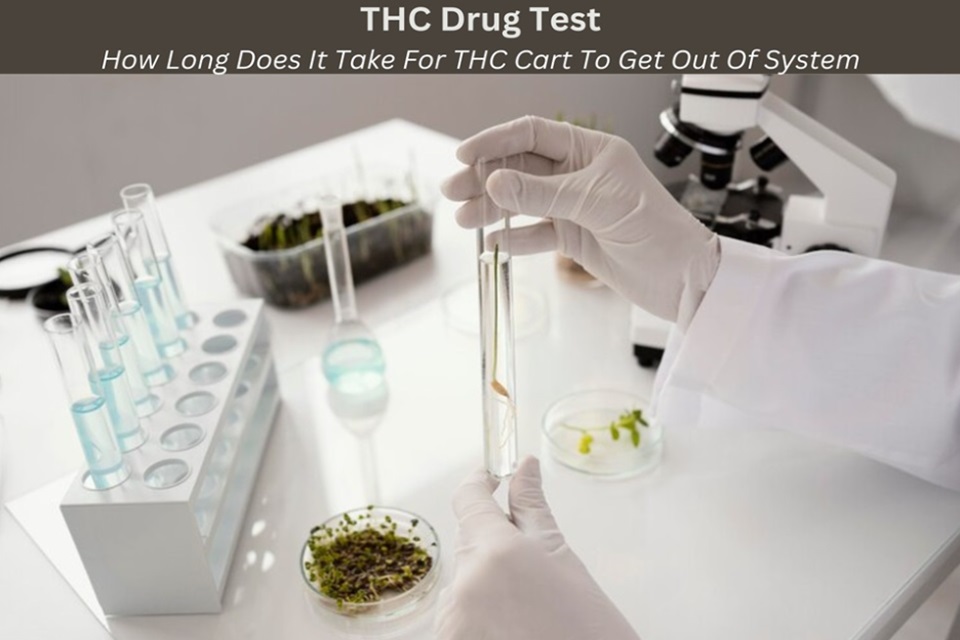A Comprehensive Guide On How Long Does It Take For THC Cart To Get Out Of System
Understanding how long THC (tetrahydrocannabinol) from vape carts stays in your system is crucial for those who might face drug testing. Whether you use it for medicinal or recreational purposes, knowing the timeline can help you manage your usage and plan accordingly. This guide delves into what THC is, its atomic structure, potency, and how long it typically remains detectable in your body.
What Is THC?
The primary psychoactive compound present in cannabis is known as tetrahydrocannabinol (THC). It is the element that causes the “high” sensation in users. THC affects the endocannabinoid system in the body, especially the CB1 receptors in the brain, impacting mood, memory, and perception.
Atomic Structure & Potency
THC’s atomic structure comprises 21 carbon atoms, 30 hydrogen atoms, and 2 oxygen atoms (C21H30O2). Its potency varies based on the cannabis strain and the method of consumption. Vaping THC usually involves highly concentrated forms of the compound, making it more potent than traditional smoking methods.
How THC Is Used In Vaping?
Vaping THC involves heating a cannabis extract or concentrate to a temperature where it vaporizes but doesn’t burn. This method is preferred by many users for its efficiency and reduced exposure to harmful byproducts of combustion. Vape carts are pre-filled with THC oil and used with vape pens or similar devices, offering a convenient and discreet way to consume cannabis.
How Long Does It Take For THC Vape To Be Out Of System?
The duration of THC remains in your system is influenced by several factors, including the frequency of use, metabolism, body fat, age, and overall health. Here are some general guidelines for how long THC from vaping might be detectable in your system based on different usage patterns:
Single Use
For individuals who use THC vapes only occasionally, the detection times are relatively short. In such cases, THC can be detected in urine for up to three days. Urine tests are the most common due to their ease of administration and reliability. In saliva, THC is detectable for up to 24 hours. Saliva tests are often used because they are quick and can detect recent use. In blood, THC is usually detectable for one to two days. Blood tests are very accurate for identifying recent consumption. In hair, THC can be detected for up to 90 days. Hair tests are the most sensitive and can provide a long-term view of drug use.
Frequent Use (2-3 Times Per Week)
For those who vape THC a few times a week, the detection windows are longer. In urine, THC can be detected for 10 to 15 days. This longer period is due to the accumulation of THC metabolites in the body from regular use. In saliva, THC is detectable for up to three days. Saliva tests can reveal more recent use but not as immediate as single-use detection. In blood, THC can be detected for about a week. Blood tests are very effective for frequent users as they provide a precise measure of recent use. In hair, THC is detectable for up to 90 days, similar to single-use, but the frequency can increase the concentration of detectable metabolites.
Daily Use
For individuals who use THC vapes daily, the detection windows increase significantly. In urine, THC can be detected for up to 30 days. This is because regular use leads to a significant buildup of THC metabolites in the body. In saliva, THC is detectable for up to 30 days. Daily use maintains higher levels of THC in saliva, extending the detection period. In blood, THC can be detected for two to three weeks. Blood tests remain effective for identifying daily use over a more extended period. In hair, THC is detectable for up to 90 days, as hair tests can capture a comprehensive history of use.
Chronic Use (Multiple Times Per Day)
For those who vape THC multiple times per day, the detection windows are the longest. In urine, THC can be detected for more than 30 days. Chronic use results in a substantial accumulation of metabolites that take longer to clear. In saliva, THC is detectable for up to 30 days. Constant use keeps THC levels high in saliva, extending the detection time. In blood, THC can be detected for about a month. Chronic users will have detectable levels of THC in their blood for a prolonged period. In hair, THC is detectable for up to 90 days. Hair tests are particularly effective for chronic users as they can show extensive and long-term use.
Different Types Of Tests & Their Effectiveness
Different drug tests have varying detection windows and sensitivities:
- Urine Tests: Most common due to their ease of use and reliability. THC is detectable for up to 30 days in frequent users.
- Saliva Tests: Detects recent use, typically within the past 24-72 hours. It’s often used for roadside testing.
- Blood Tests: THC is detectable for 1-7 days in blood, but frequent users might test positive for longer.
- Hair Tests: Can detect THC for up to 90 days. Hair tests are very sensitive but less commonly used due to higher costs and complexity.
Bottom Line
The time THC stays in your system varies widely based on individual factors and usage patterns. While occasional users might clear THC relatively quickly, frequent or chronic users may have detectable levels for a month or more. Understanding these variables can help you manage your cannabis use more effectively, especially if facing potential drug testing.
FAQs
Can drinking water help flush THC out of your system?
While staying hydrated can help maintain overall health, there is no substantial evidence that drinking large amounts of water can significantly speed up the elimination of THC.
Do detox kits work for clearing THC from your system?
Most detox kits are not scientifically proven to be effective. They often involve diuretics that temporarily dilute urine but do not eliminate THC from the body.
Can exercise help reduce THC levels in your system?
Exercise can help burn fat where THC metabolites are stored, potentially aiding in reducing levels. However, it’s not a guaranteed or quick fix.
Is it possible to test positive for THC from secondhand smoke?
It’s unlikely to test positive for THC from casual exposure to secondhand smoke. Significant exposure in a confined space, however, might lead to detectable levels.





